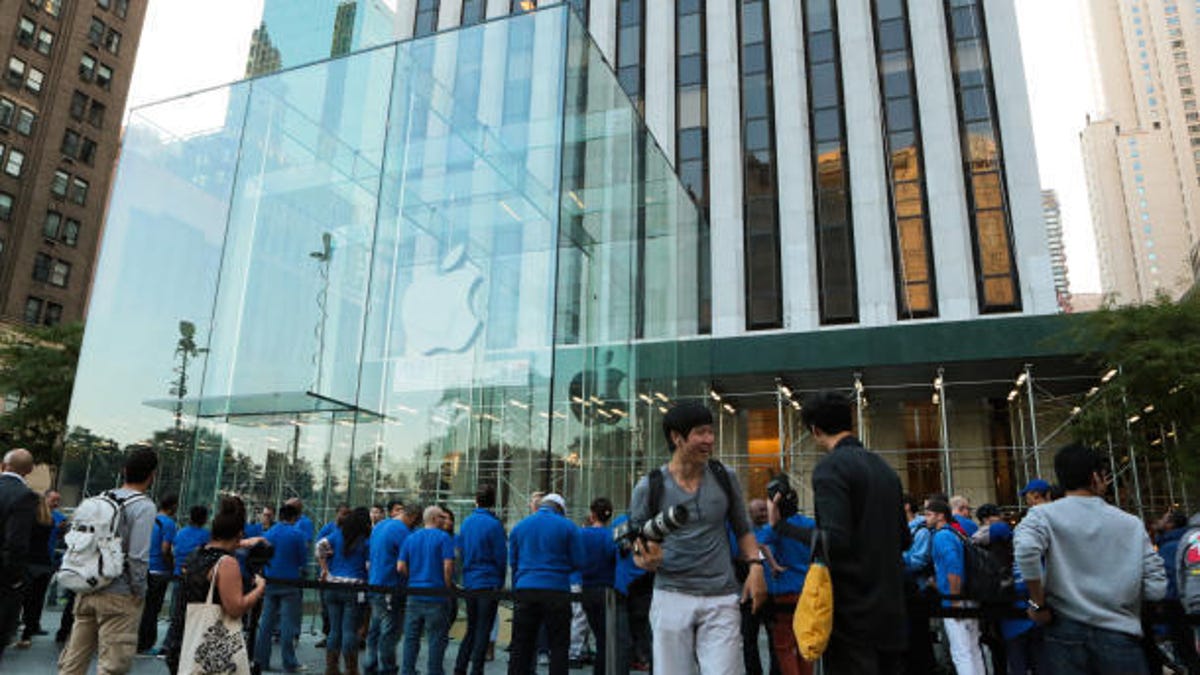Real-world 'Do Not Track' coming to retail stores
Eight companies agree to a plan from New York's senator to tell people when they are being tracked while shopping in retail stores, and to let them opt-out.

Just in time for the holiday shopping season, retail stores have figured out how to track you as you physically move through their stores -- not unlike their shopping Web site counterparts.
As revealed in July by Sen. Charles Schumer, retail locations have been testing technology that would allow them to use your cell phone to follow you as you shop. A new compromise brokered by the New York Democrat and the privacy advocacy group Future of Privacy Forum, announced on Tuesday outside the shopping center at Columbus Circle in New York City, hopes to ensure that in-store shoppers have some privacy protection options.
Eight of the 10 major cell phone tracking companies have agreed to the code of conduct. They have agreed to notify shoppers when they're being tracked, and to give them a chance to opt out, reported TechCrunch.
Most people probably have never heard of the companies involved: Euclid; iInside, which is part of WirelessWERX; Mexia Interactive; Nomi; SOLOMO; Radius Networks; Brickstream; and Turnstyle Solutions. They track your movements using Wi-Fi signals and Bluetooth MAC addresses, and then aggregate the data for the retail company.
The code requires stores to post conspicuous signs when using the tracking technology, and to offer a Web site from which customers can opt out of being tracked. It also states that the data collected must be not be personal, and that it can't be used to adversely affect a shopper's employment, health care, or insurance.
A request for comment by Schumer's office was directed to the Future of Privacy Forum. The FPF's director, Jules Polonetsky, said, "There's work to be done still, but it's good progress. The Future of Privacy Forum is voting members of the W3C. We were very involved," he said, in the discussions over the Do Not Track standard.
"The lesson from that is this: when you bite off a big chunk, you spend a lot of time chewing," he said.
It's not clear what impact the code will have. Not all cell-phone tracking companies have agreed to the code of conduct; no announcement has been made on when the code will be implemented; what the penalties are for companies that violate the code; or whether a voluntary code of conduct for retail shopping will face the same tortured fate as the Web's Do Not Track standard.
"This is a significant step forward in the quest for consumer privacy," Schumer said in a statement. "This agreement shows that technology companies, retailers, and consumer advocates can work together in the best interest of the consumer."
Privacy expert Sarah Downey said that the retail location tracking is the next front in the battle for privacy protection. "Where are your eyes when you look at products? Which aisle are you in? If you're a woman of a certain age, which window arrangement do you spend the longest in front of? This is really all the stuff that they've done online for years, and it's coming to the real world," she said.
Schumer did acknowledge that the compromise is limited, saying that "there is more work to be done."
Of the companies that signed on so far, seven have released statements touting the code's protection of consumer privacy and the use of technology in improving the retail shopping experience.
Polonetsky added that this could help stores design floor plans that make it easier for shoppers to find what they want, or figure out if a shift is understaffed. "This is the first step towards the omnichannel experience stores want to provide," he said.
Updated on Thursday, Oct. 24, at 4:55 p.m. PST with comment from the director of the Future of Privacy Forum.

